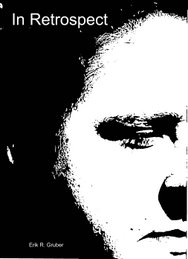Thanks again everyone for the great comments. Ideas are percolating, dialogue is brewing…Is it time for a coffee?
A quick response to the last couple of comments before moving on to today’s topic: Mr. Antagonist, there is no doubt in my mind that someone could very convincingly challenge everything I’m saying. I’m not an expert on these issues by any means (I barely pass as competent – sorry to burst anyone’s bubble).
I agree with you that science and religion are not inherent enemies. The problem, in my eyes, is that everyone is too damn reactionary to be reasonable. I agree with P Corcs that there are scientists pushing evolution because of an atheistic agenda, just as there are Christians pushing creationism because of a religious agenda. Often, when these two sides butt heads, logic and reason are lost.
Scientists desperate to disprove religion manifest new ideas, many of which are themselves illegitimized years later (we’re too young for this, but how about the “Big Chill” of the ‘70s? http://en.wikipedia.org/wiki/Global_cooling)
As P Corcs pointed out, blindly believing in unproven scientific precepts requires an enormous amount of faith and is still religion; just religion by a different name. This becomes a problem when the weight of “science” is thrown behind a theory and given the authority of “fact.”
Christian fundamentalists then react by declaring all science to be hogwash, and not conceding any science as fact (looking like buffoons in the process) In reality, whether you believe in evolution, a Grand Creator, or any combination of both, it’s impossible to deny science (and it would be preposterously ignorant to try).
Alright, moving on to today’s topic…
The third question the non-theist can’t answer deals with ethics. Seemingly, every person is born with a conscience, a sense of right and wrong.
The non-theist would account for the conscience as being one of two things. The first option is individual relativism, which is the theory that each individual sets moral standards for him/herself. This idea, however, doesn’t account for the similarities in the moral standards from person to person. We may claim that our individual standards differ (convenient when justifying poor behavior), but we still have what is known as a “judicious sentiment.” This means that even if we claim to have lower individual moral standards, we still hold others up to a higher set. According to C.S. Lewis, this is unavoidable and undeniable. He says in his book Mere Christianity:
“Whenever you find a man who says he does not believe in a real Right and Wrong, you will find the same man going back on this a moment later. He may break his promise to you, but if you try breaking one to him he will be complaining “It’s not fair” before you can say Jack Robinson…Have [cultural relativists] not let the cat out of the bag and shown that, whatever they say, they really know the Law of Nature just like everyone else?”
The other option for the non-theist is to claim that cultural relativism is the foundation of morality. This too is an inadequate explanation because every culture has a similar base set of moral standards. Again I’ll refer to C.S. Lewis’s Mere Christianity:
“Think of a country where people were admired for running away in battle, or where a man felt proud of doublecrossing all the people who had been kindest to him. You might just as well try to imagine a country where two and two made five.”
Relativism is not a sufficient explanation for morality because it is simply not applicable to real life. Imagine the Nazi’s had won World War II. They went on to kill any opposition, so by the time they were finished everyone in the culture believed that killing Jews was a virtuous action. Could the non-theist then claim that murder is virtuous? Wouldn’t the killing of Jews still be abhorrent, in spite of the cultural assertion that it’s the greatest good?
Also, in a relativistic mindset moral progress is impossible because changing current moral standards is always wrong at the time of the overthrow. This means that a non-theist, in maintaining relativity, would oppose abolitionism, the Civil Rights Movement, child labor laws, the overthrow of oppressive or genocidal governments, even the American Revolution.
This leaves us with the question of where our moral standards come from. What prevents humanity, as a whole, from being completely self-absorbed; from becoming an anarchy of greedy, murderous wretches consumed by the individualistic pursuit of power?
For me, the only conceivable answer is that they were instilled in us by a Grand Organizer, a Creator. I believe that, more than any other of the arguments I have made, this inherent morality points to the existence of an involved, intervening higher-power: A force that has a personal interest in our actions, our well-being, our survival, and perhaps…dare I say…our souls.
Thanks for reading.
Subscribe to:
Post Comments (Atom)


















11 comments:
Good post G-roobs. Not much to say at the moment other than God bless Epic Duels!
I like most everything you write Zot...I have one qualm with one of your responses to the creation debate...You wrote, "Christian scholars then react by declaring all science to be hogwash..." As an aspiring Christian scholar I feel it is overly broad...Am I nitpicking? Yes...But only because I think today it is the uneducated, uniformed, most likely Relgious Rightist, who just got home from a Jim Dobson rally and is about to beat his gay son and launder his dirty oil money, who is still wants to fight this creation vs. evolution debate...It's simply not scholars...maybe the scholars of the Enlightenment Catholic Church, but certainly not the majority of the forefront of Christian scholars today...
Ok say that was a huge overgeneralization, but was still fun cuz I got to talk poo about wealthy, Jim Dobson loving Rightys! Sorry if you are offended (sorta)...
I am not endorsing the left by talking poo about the right...I spread poo talk over both parties...or shall I say both "pottys" That was a terrible joke...Sorry about this whole response...I shall now cry in shame...
PS
What do you call a mix between a potatoed side dish, finger food, and Erik Gruber--(punchline below)
-
-
-
-
-
-
-
-
-
-
-----
-
--
-
-
-
-
-
-
-
-
Tater Zots
Nice wordplay, Cassel.
I didn't mean to offend with the "Christian Scholars." The term was probably too broad to use in this context. I simply generalized "Christian Scholars" to provide the counterpoint to "scientist." I realize that most serious scholars wouldn't actually dismiss science as hogwash. The post has been edited.
Grubs,
Great post and probably one of the strongest arguments, at least for me, so far. I can't add anything to it, because if i did it would just take integrity away from an already great post.
So on that note, i can't wait to dominate ED, Halo 3 and watch you smoke P Corcs in Fantasy.
P.S. Chris you so cutes!
Joey,
Do you dominate ED with Cialis or Levitra?
I actually use pictures of Deb to help me through the hard times of ED
or should i say "not so hard times"
Oh Deb! Debby debby, debby debby doo dat dance! Don't do da dance dat debby does, debby do da dance...................
I like the way you ended the writing. When I stop to think about what causes me to make the choices that I do, it is more then my beliefs. There are so many good and wonderful people in the world that aren't Christians and don't use the Bible as a guideline of there everyday life, but they have some understanding of morals and what is right and wrong.
Somehow those things were implanted within in all of us and it didn't happen by chance. There was a reason and someone created us the way we are.
Oh man, you are bumping right up against my two majors and I love it baby! First off, cultural relativism, at least in an academic context, does not suggest that concepts of "right and wrong" are relative to an indvidual. What it is suggesting is that morality is relative to a particular culture. This is an important distinction because all cultures have rules, be it their own rules. In anthropology, this is an extremely contentious issue. On one hand, anthropology's primary goal is to observe and explain, some would say that this should be its only goal. On the other hand, how can someone view something like the Nazis through a purely academic lens?
I suppose, in the eyes of an anthropologist, the question is not if cultural relativism exists (which it does and doesn't at the same time...confusing I know), but rather how one should react to it.
There is no question that cultural universals exist (elements that are found in every culture). Every society values family. Every culture encourages peace within its own ranks.
The real question...the real debate...are these universal values handed down to us by God, or by collection theory (society)?
I'm going to leave that one for my own blog...if I ever get around to updating it.
Post a Comment